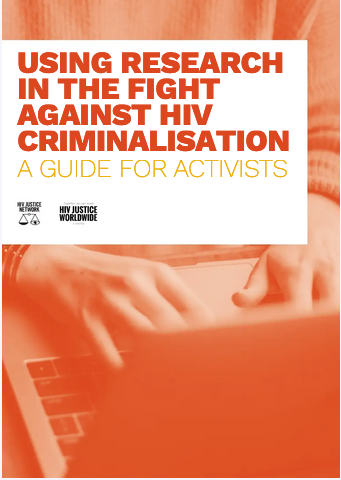
Most advocates working to end HIV criminalisation are not formally trained researchers. The thought of reading and using scientific studies may feel daunting. There is no “one best way” to use research for advocacy; no simple “paint-by-numbers” guide. But there are some basic principles and ideas about research and how to use it in advocacy that can be helpful.
In this guide, published by the HIV Justice Network, we present those principles and ideas. Our goal is to demystify research about HIV criminalisation and suggest some of the ways it can be used by advocates.
The guide was written by Professor Eric Mykhalovskiy, Sociology Department, York University, Canada; Edwin J Bernard, HIV Justice Network’s Executive Director; Sally Cameron, HIV Justice Network’s Senior Policy Analyst; and Laurel Sprague, formerly with Sero, HIV Justice Network, and GNP+ and now Special Advisor, Community Mobilisation, UNAIDS.
This guide, which can be downloaded as a 22 page pdf or read in full below, has five main sections:
Section one discusses the growing expectation to use research evidence in advocacy work.
Section two defines what we mean by research.
Section three describes the different kinds of research that have been done on HIV criminalisation.
Section four talks about how to find, read and interpret research on HIV criminalisation.
Section five gives some examples of how advocates have successfully used research to challenge HIV criminalisation.
Using Research In The Fight… by HIV Justice Network on Scribd